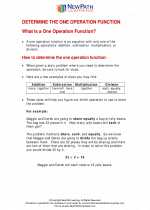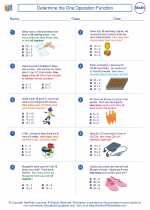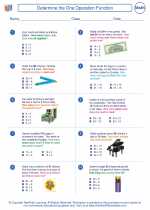Determining the One Operation Function
In mathematics, a function is a rule that assigns each input exactly one output. A one operation function is a function where there is only one mathematical operation involved in determining the output based on the input.
To determine if a function is a one operation function, you need to look at the rule or equation that defines the function. The most common mathematical operations are addition, subtraction, multiplication, division, and exponentiation.
For example, if we have a function f(x) defined as:
f(x) = 3x + 5
In this case, the only mathematical operations involved are multiplication (3x) and addition (+5). Therefore, this function is a one operation function.
On the other hand, if we have a function g(x) defined as:
g(x) = 2x^2 - 4x + 7
In this case, there are multiple operations involved, including exponentiation (^2), multiplication (2x^2 and -4x), and addition (+7). Therefore, this function is not a one operation function.
.◂Math Worksheets and Study Guides Third Grade. Determine the One Operation Function

 Worksheet/Answer key
Worksheet/Answer key
 Worksheet/Answer key
Worksheet/Answer key
 Worksheet/Answer key
Worksheet/Answer key
